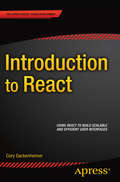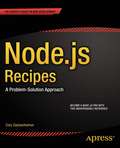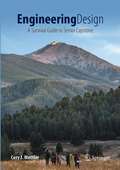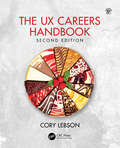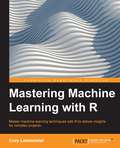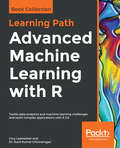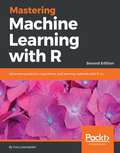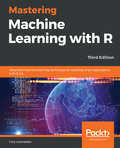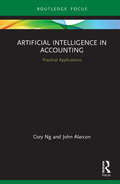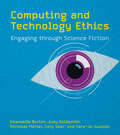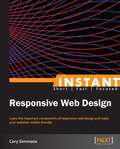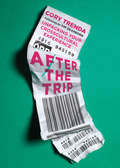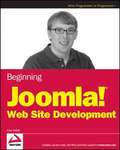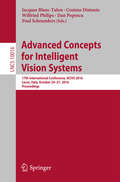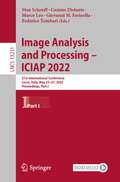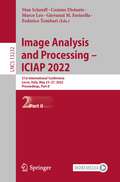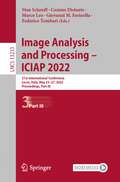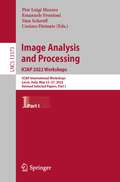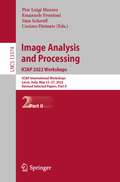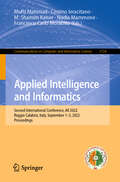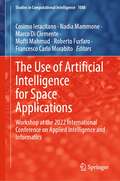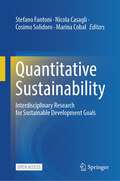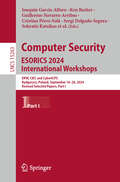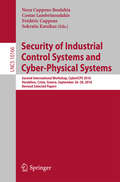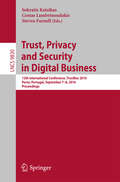- Table View
- List View
Introduction to React
by Cory GackenheimerIntroduction to React teaches you React, the JavaScript framework created by developers at Facebook, to solve the problem of building complex user interfaces in a consistent and maintainable way. React. js shrugs away common front-end conventions in an effort to make things more efficient - use Introduction to React to learn about this framework and more today. Get to know the React API and it's specific JavaScript extension, JSX, which makes authoring React components easier and maintainable. You will also learn how to test your React applications and about the tools you can use while building. Once you understand these core concepts, you can build applications with React. This will help you cement the ideas and fundamentals of React and prepare you to utilize React in your own use case. What you'll learn How to use React to maintain complex user interfaces in an efficient way How to integrate existing user interfaces and move forward with React How to manage application architecture using Flux How to easily utilize JSX, React's JavaScript extension Who this book is for Introduction to React is for a web developer who is comfortable writing JavaScript and CSS. You will apply JavaScript to build web pages that utilize the paradigm shifting React framework. Introduction to React will provide you with the tools to create maintainable complex user interfaces. Table of Contents Chapter 1: What is React? Chapter 2: The Core of React Chapter 3: JSX Fundamentals Chapter 4: Building A React Web Application Chapter 5: Introducing Flux: An Application Architecture for React Chapter 6: Using Flux to Structure a React Application
Node.js Recipes
by Cory GackenheimerNode. js Recipes is your one-stop reference for solving Node. js problems. Filled with useful recipes that follow a problem/solution format, you can look up recipes for many situations that you may come across in your day-to-day server-side development. Node. js is accessible to those who not only relish in server-side programming but also web developers who understand the ubiquitous language of the web. Node. js Recipes covers all the essential ingredients required to become a seasoned Node. js developer in no time - make it your indispensable reference today.
Engineering Design: A Survival Guide to Senior Capstone
by Cory J. MettlerEngineering Senior Design is perhaps the course that most resembles what an engineering professional will be required to do during their career; it is the bridge between the academic classroom and the engineering profession. This textbook will support students as they learn to apply their previously-developed skills to solve a complex engineering problem during a senior-level design course. This textbook follows the design life cycle from project initiation to completion and introduces students to many soft engineering skills, such as communication, scheduling, and technical writing, in the context of an engineering design. Students are instructed how to define an engineering problem with a valid problem statement and requirements document. They will conceptualize a complex solution and divide that solution into manageable subsystems. More importantly, they will be introduced to Project Management techniques that will help students organize workloads, develop functional engineering-teams, and validate solutions, all while increasing the likelihood of a successful completion to the project. Throughout the experience, students are instructed that a well-intentioned solution is not particularly useful unless it can be communicated and documented. To that end, this textbook will help students document their work in a professional manner and to present their ideas to stakeholders in a variety of formal design-reviews. With the support of this textbook, by the end of a student’s senior design experience, each individual will be ready to communicate with other engineering professionals, effectively support engineering design-teams, and manage complex project to solve the next generation’s engineering challenges.
The UX Careers Handbook
by Cory LebsonThis second edition of The UX Careers Handbook offers you all the great advice of the first edition—freshly updated—plus a new chapter on critical soft skills, much more on becoming a UX leader, and a 17th user experience (UX) career pathway. The UX Careers Handbook, Second Edition, offers you an insider's advice on learning, personal branding, networking skills, building your resume and portfolio, and actually landing that UX job you want, as well as an in-depth look at what it takes to get into and succeed in a UX career. Whether your interests include design, information architecture, strategy, research, UX writing, or any of the other core UX skillsets, you'll find a wealth of resources in this book. The book also includes: Insights and personal stories from a range of industry-leading UX professionals to show you how they broke into the industry and evolved their own careers over time Activities and worksheets to help you make good decisions and build your career Along with the book, you can explore its companion website with more resources and information to help you stay on top of this fast-changing field. Not only for job seekers, The UX Careers Handbook, Second Edition, is a must-have for Employers and recruiters who want to better understand how to hire and keep UX staff Undergraduate and graduate students thinking about their future careers Professionals in other careers who are thinking about starting to do UX work Cory Lebson has been a UX consultant and user researcher for over two decades. He is Principal and Owner of a small UX research consultancy, a builder of UX community, and a past president of the User Experience Professionals Association (UXPA). Not only a practitioner of UX, Cory teaches and mentors to help professionals grow their UX skills and conducts regular talks and workshops on topics related to both UX skills and career development.
Mastering Machine Learning with R
by Cory LeismesterIf you want to learn how to use R's machine learning capabilities to solve complex business problems, then this book is for you. Some experience with R and a working knowledge of basic statistical or machine learning will prove helpful.
Advanced Machine Learning with R: Tackle data analytics and machine learning challenges and build complex applications with R 3.5
by Cory Lesmeister Dr. Sunil ChinnamgariMaster machine learning techniques with real-world projects that interface TensorFlow with R, H2O, MXNet, and other languagesKey FeaturesGain expertise in machine learning, deep learning and other techniquesBuild intelligent end-to-end projects for finance, social media, and a variety of domainsImplement multi-class classification, regression, and clusteringBook DescriptionR is one of the most popular languages when it comes to exploring the mathematical side of machine learning and easily performing computational statistics.This Learning Path shows you how to leverage the R ecosystem to build efficient machine learning applications that carry out intelligent tasks within your organization. You'll tackle realistic projects such as building powerful machine learning models with ensembles to predict employee attrition. You'll explore different clustering techniques to segment customers using wholesale data and use TensorFlow and Keras-R for performing advanced computations. You’ll also be introduced to reinforcement learning along with its various use cases and models. Additionally, it shows you how some of these black-box models can be diagnosed and understood.By the end of this Learning Path, you’ll be equipped with the skills you need to deploy machine learning techniques in your own projects.This Learning Path includes content from the following Packt products:R Machine Learning Projects by Dr. Sunil Kumar ChinnamgariMastering Machine Learning with R - Third Edition by Cory LesmeisterWhat you will learnDevelop a joke recommendation engine to recommend jokes that match users’ tastesBuild autoencoders for credit card fraud detectionWork with image recognition and convolutional neural networksMake predictions for casino slot machine using reinforcement learningImplement NLP techniques for sentiment analysis and customer segmentationProduce simple and effective data visualizations for improved insightsUse NLP to extract insights for textImplement tree-based classifiers including random forest and boosted treeWho this book is forIf you are a data analyst, data scientist, or machine learning developer this is an ideal Learning Path for you. Each project will help you test your skills in implementing machine learning algorithms and techniques. A basic understanding of machine learning and working knowledge of R programming is necessary to get the most out of this Learning Path.
Mastering Machine Learning with R - Second Edition
by Cory LesmeisterMaster machine learning techniques with R to deliver insights in complex projects About This Book • Understand and apply machine learning methods using an extensive set of R packages such as XGBOOST • Understand the benefits and potential pitfalls of using machine learning methods such as Multi-Class Classification and Unsupervised Learning • Implement advanced concepts in machine learning with this example-rich guide Who This Book Is For This book is for data science professionals, data analysts, or anyone with a working knowledge of machine learning, with R who now want to take their skills to the next level and become an expert in the field. What You Will Learn • Gain deep insights into the application of machine learning tools in the industry • Manipulate data in R efficiently to prepare it for analysis • Master the skill of recognizing techniques for effective visualization of data • Understand why and how to create test and training data sets for analysis • Master fundamental learning methods such as linear and logistic regression • Comprehend advanced learning methods such as support vector machines • Learn how to use R in a cloud service such as Amazon In Detail This book will teach you advanced techniques in machine learning with the latest code in R 3.3.2. You will delve into statistical learning theory and supervised learning; design efficient algorithms; learn about creating Recommendation Engines; use multi-class classification and deep learning; and more. You will explore, in depth, topics such as data mining, classification, clustering, regression, predictive modeling, anomaly detection, boosted trees with XGBOOST, and more. More than just knowing the outcome, you'll understand how these concepts work and what they do. With a slow learning curve on topics such as neural networks, you will explore deep learning, and more. By the end of this book, you will be able to perform machine learning with R in the cloud using AWS in various scenarios with different datasets. Style and approach The book delivers practical and real-world solutions to problems and a variety of tasks such as complex recommendation systems. By the end of this book, you will have gained expertise in performing R machine learning and will be able to build complex machine learning projects using R and its packages.
Mastering Machine Learning with R: Advanced machine learning techniques for building smart applications with R 3.5, 3rd Edition
by Cory LesmeisterStay updated with expert techniques for solving data analytics and machine learning challenges and gain insights from complex projects and power up your applications Key Features Build independent machine learning (ML) systems leveraging the best features of R 3.5 Understand and apply different machine learning techniques using real-world examples Use methods such as multi-class classification, regression, and clustering Book Description Given the growing popularity of the R-zerocost statistical programming environment, there has never been a better time to start applying ML to your data. This book will teach you advanced techniques in ML ,using? the latest code in R 3.5. You will delve into various complex features of supervised learning, unsupervised learning, and reinforcement learning algorithms to design efficient and powerful ML models. This newly updated edition is packed with fresh examples covering a range of tasks from different domains. Mastering Machine Learning with R starts by showing you how to quickly manipulate data and prepare it for analysis. You will explore simple and complex models and understand how to compare them. You'll also learn to use the latest library support, such as TensorFlow and Keras-R, for performing advanced computations. Additionally, you'll explore complex topics, such as natural language processing (NLP), time series analysis, and clustering, which will further refine your skills in developing applications. Each chapter will help you implement advanced ML algorithms using real-world examples. You'll even be introduced to reinforcement learning, along with its various use cases and models. In the concluding chapters, you'll get a glimpse into how some of these blackbox models can be diagnosed and understood. By the end of this book, you'll be equipped with the skills to deploy ML techniques in your own projects or at work. What you will learn Prepare data for machine learning methods with ease Understand how to write production-ready code and package it for use Produce simple and effective data visualizations for improved insights Master advanced methods, such as Boosted Trees and deep neural networks Use natural language processing to extract insights in relation to text Implement tree-based classifiers, including Random Forest and Boosted Tree Who this book is for This book is for data science professionals, machine learning engineers, or anyone who is looking for the ideal guide to help them implement advanced machine learning algorithms. The book will help you take your skills to the next level and advance further in this field. Working knowledge of machine learning with R is mandatory.
Artificial Intelligence in Accounting: Practical Applications (ISSN)
by Cory Ng John AlarconArtificial Intelligence in Accounting: Practical Applications was written with a simple goal: to provide accountants with a foundational understanding of AI and its many business and accounting applications. It is meant to serve as a guide for identifying opportunities to implement AI initiatives to increase productivity and profitability. This book will help you answer questions about what AI is and how it is used in the accounting profession today. Offering practical guidance that you can leverage for your organization, this book provides an overview of essential AI concepts and technologies that accountants should know, such as machine learning, deep learning, and natural language processing. It also describes accounting-specific applications of robotic process automation and text mining. Illustrated with case studies and interviews with representatives from global professional services firms, this concise volume makes a significant contribution to examining the intersection of AI and the accounting profession. This innovative book also explores the challenges and ethical considerations of AI. It will be of great interest to accounting practitioners, researchers, educators, and students.
Computing and Technology Ethics: Engaging through Science Fiction
by Emanuelle Burton Judy Goldsmith Nicholas Mattei Cory Siler Sara-Jo SwiatekA new approach to teaching computing and technology ethics using science fiction stories.Should autonomous weapons be legal? Will we be cared for by robots in our old age? Does the efficiency of online banking outweigh the risk of theft? From communication to travel to medical care, computing technologies have transformed our daily lives, for better and for worse. But how do we know when a new development comes at too high a cost? Using science fiction stories as case studies of ethical ambiguity, this engaging textbook offers a comprehensive introduction to ethical theory and its application to contemporary developments in technology and computer science. Computing and Technology Ethics: Engaging through Science Fiction first introduces the major ethical frameworks: deontology, utilitarianism, virtue ethics, communitarianism, and the modern responses of responsibility ethics, feminist ethics, and capability ethics. It then applies these frameworks to many of the modern issues arising in technology ethics including privacy, computing, and artificial intelligence. A corresponding anthology of science fiction brings these quandaries to life and challenges students to ask ethical questions of themselves and their work. Uses science fiction case studies to make ethics education engaging and fun Trains students to recognize, evaluate, and respond to ethical problems as they ariseFeatures anthology of short stories from internationally acclaimed writers including Ken Liu, Elizabeth Bear, Paolo Bacigalupi, and T. C. Boyle to animate ethical challenges in computing technology Written by interdisciplinary author team of computer scientists and ethical theoristsIncludes a robust suite of instructor resources, such as pedagogy guides, story frames, and reflection questions
Instant Responsive Web Design
by Cory SimmonsA step-by-step tutorial approach which will teach the readers what responsive web design is and how it is used in designing a responsive web page.If you are a web-designer looking to expand your skill set by learning the quickly growing industry standard of responsive web design, this book is ideal for you. Knowledge of CSS is assumed.
After the Trip: Unpacking Your Crosscultural Experience
by Cory Trenda Tim DearbornVeteran trip leader and intercultural guide Cory Trenda says yes—if we let the trip launch a journey of integrating the experience into our ongoing life. In After the Trip Trenda provides a unique guide for individuals and teams to make the most of a crosscultural trip after returning home. Readers will find help with navigating the crucial reentry process, remembering and sharing key stories, interweaving new insights into everyday life, and engaging in continuing learning and service. Combining practical tips, reflections, and stories from Trenda's own decades of crosscultural travel, this is an essential resource for organizations, churches, schools, and all travelers who want crosscultural trips to be a catalyst for lasting good. The trip itself is just the beginning; real life change happens after the trip.
Beginning Joomla! Web Site Development
by Cory WebbBy programmers for programmers-the essential beginner's guide to building websites with Joomla! Want to build and maintain dynamic websites without having to learn HTML and CSS? Joomla! open-source web content management system and this beginner's guide are all you need. This book walks you step-by-step through the process of building a website with Joomla!, providing detailed instruction in Wrox's practical, programmer-to- programmer style. The book explores key concepts and shows how each concept relates to the development of an actual real-world web site you can access online. Joomla! is an open-source web content management system used to build and maintain dynamic web sites without using specific web languages like HTML and Cascading Style Sheets (CSS) Walks you step by step through the process of building a website with Jooma! and features plenty of examples of actual websites that illustrate concepts Topics include configuration; managing content, core modules, plugins, menus, and extensions; building custom templates; and performing troubleshooting; also provides advanced tips and tricks, and more From configuration and management to troubleshooting and advanced tips, this is the book to get you up and running with Joomla!
Advanced Concepts for Intelligent Vision Systems: 17th International Conference, ACIVS 2016, Lecce, Italy, October 24-27, 2016, Proceedings (Lecture Notes in Computer Science #10016)
by Cosimo Distante Jacques Blanc-Talon Wilfried Philips Dan Popescu Paul ScheundersThis book constitutes the refereed proceedings of the 17th International Conference on Advanced Concepts for Intelligent Vision Systems, ACIVS 2016, held in Lecce, Italy, in October 2016. The 64 revised full papers presented in this volume were carefully selected from 137 submissions. They deal with classical low-level image processing techniques; image and video compression; 3D; security and forensics; and evaluation methodologies.
Image Analysis and Processing – ICIAP 2022: 21st International Conference, Lecce, Italy, May 23–27, 2022, Proceedings, Part I (Lecture Notes in Computer Science #13231)
by Cosimo Distante Marco Leo Stan Sclaroff Giovanni M. Farinella Federico TombariThe proceedings set LNCS 13231, 13232, and 13233 constitutes the refereed proceedings of the 21st International Conference on Image Analysis and Processing, ICIAP 2022, which was held during May 23-27, 2022, in Lecce, Italy,The 168 papers included in the proceedings were carefully reviewed and selected from 307 submissions. They deal with video analysis and understanding; pattern recognition and machine learning; deep learning; multi-view geometry and 3D computer vision; image analysis, detection and recognition; multimedia; biomedical and assistive technology; digital forensics and biometrics; image processing for cultural heritage; robot vision; etc.
Image Analysis and Processing – ICIAP 2022: 21st International Conference, Lecce, Italy, May 23–27, 2022, Proceedings, Part II (Lecture Notes in Computer Science #13232)
by Cosimo Distante Marco Leo Stan Sclaroff Giovanni M. Farinella Federico TombariThe proceedings set LNCS 13231, 13232, and 13233 constitutes the refereed proceedings of the 21st International Conference on Image Analysis and Processing, ICIAP 2022, which was held during May 23-27, 2022, in Lecce, Italy,The 168 papers included in the proceedings were carefully reviewed and selected from 307 submissions. They deal with video analysis and understanding; pattern recognition and machine learning; deep learning; multi-view geometry and 3D computer vision; image analysis, detection and recognition; multimedia; biomedical and assistive technology; digital forensics and biometrics; image processing for cultural heritage; robot vision; etc.
Image Analysis and Processing – ICIAP 2022: 21st International Conference, Lecce, Italy, May 23–27, 2022, Proceedings, Part III (Lecture Notes in Computer Science #13233)
by Cosimo Distante Marco Leo Stan Sclaroff Giovanni M. Farinella Federico TombariThe proceedings set LNCS 13231, 13232, and 13233 constitutes the refereed proceedings of the 21st International Conference on Image Analysis and Processing, ICIAP 2022, which was held during May 23-27, 2022, in Lecce, Italy,The 168 papers included in the proceedings were carefully reviewed and selected from 307 submissions. They deal with video analysis and understanding; pattern recognition and machine learning; deep learning; multi-view geometry and 3D computer vision; image analysis, detection and recognition; multimedia; biomedical and assistive technology; digital forensics and biometrics; image processing for cultural heritage; robot vision; etc.
Image Analysis and Processing. ICIAP 2022 Workshops: ICIAP International Workshops, Lecce, Italy, May 23–27, 2022, Revised Selected Papers, Part I (Lecture Notes in Computer Science #13373)
by Cosimo Distante Pier Luigi Mazzeo Stan Sclaroff Emanuele FrontoniThe two-volume set LNCS 13373 and 13374 constitutes the papers of several workshops which were held in conjunction with the 21st International Conference on Image Analysis and Processing, ICIAP 2022, held in Lecce, Italy, in May 2022.The 96 revised full papers presented in the proceedings set were carefully reviewed and selected from 157 submissions.ICIAP 2022 presents the following Sixteen workshops:Volume I:GoodBrother workshop on visual intelligence for active and assisted livingParts can worth like the Whole - PART 2022Workshop on Fine Art Pattern Extraction and Recognition - FAPERWorkshop on Intelligent Systems in Human and Artificial Perception - ISHAPE 2022Artificial Intelligence and Radiomics in Computer-Aided Diagnosis - AIRCADDeep-Learning and High Performance Computing to Boost Biomedical Applications - DeepHealthVolume II: Human Behaviour Analysis for Smart City Environment Safety - HBAxSCESBinary is the new Black (and White): Recent Advances on Binary Image ProcessingArtificial Intelligence for preterm infants’ healthCare - AI-careTowards a Complete Analysis of People: From Face and Body to Clothes - T-CAPArtificial Intelligence for Digital Humanities - AI4DHMedical Transformers - MEDXFLearning in Precision Livestock Farming - LPLFWorkshop on Small-Drone Surveillance, Detection and Counteraction Techniques - WOSDETCMedical Imaging Analysis For Covid-19 - MIACOVID 2022Novel Benchmarks and Approaches for Real-World Continual Learning - CL4REAL
Image Analysis and Processing. ICIAP 2022 Workshops: ICIAP International Workshops, Lecce, Italy, May 23–27, 2022, Revised Selected Papers, Part II (Lecture Notes in Computer Science #13374)
by Cosimo Distante Pier Luigi Mazzeo Stan Sclaroff Emanuele FrontoniThe two-volume set LNCS 13373 and 13374 constitutes the papers of several workshops which were held in conjunction with the 21st International Conference on Image Analysis and Processing, ICIAP 2022, held in Lecce, Italy, in May 2022.The 96 revised full papers presented in the proceedings set were carefully reviewed and selected from 157 submissions.ICIAP 2022 presents the following Sixteen workshops:Volume I:GoodBrother workshop on visual intelligence for active and assisted livingParts can worth like the Whole - PART 2022Workshop on Fine Art Pattern Extraction and Recognition - FAPERWorkshop on Intelligent Systems in Human and Artificial Perception - ISHAPE 2022Artificial Intelligence and Radiomics in Computer-Aided Diagnosis - AIRCADDeep-Learning and High Performance Computing to Boost Biomedical Applications - DeepHealthVolume II: Human Behaviour Analysis for Smart City Environment Safety - HBAxSCESBinary is the new Black (and White): Recent Advances on Binary Image ProcessingArtificial Intelligence for preterm infants’ healthCare - AI-careTowards a Complete Analysis of People: From Face and Body to Clothes - T-CAPArtificial Intelligence for Digital Humanities - AI4DHMedical Transformers - MEDXFLearning in Precision Livestock Farming - LPLFWorkshop on Small-Drone Surveillance, Detection and Counteraction Techniques - WOSDETCMedical Imaging Analysis For Covid-19 - MIACOVID 2022Novel Benchmarks and Approaches for Real-World Continual Learning - CL4REAL
Applied Intelligence and Informatics: Second International Conference, AII 2022, Reggio Calabria, Italy, September 1–3, 2022, Proceedings (Communications in Computer and Information Science #1724)
by Francesco Carlo Morabito Mufti Mahmud M. Shamim Kaiser Cosimo Ieracitano Nadia MammoneThis book constitutes the refereed proceedings of the Second International Conference on Applied Intelligence and Informatics, AII 2022, held in Reggio Calabria, Italy, during September 1–3, 2022. The 38 full papers included in this book were carefully reviewed and selected from 108 submissions. They were organized in topical sections as follows: Emerging Applications of AI and Informatics; Application of AI and Informatics in Healthcare; Application of AI and Informatics in Pattern Recognition; and Application of AI and Informatics in Network, Security, and Analytics.
The Use of Artificial Intelligence for Space Applications: Workshop at the 2022 International Conference on Applied Intelligence and Informatics (Studies in Computational Intelligence #1088)
by Francesco Carlo Morabito Mufti Mahmud Cosimo Ieracitano Nadia Mammone Marco Di Clemente Roberto FurfaroThis book is an ideal and practical resource on the potential impact Artificial Intelligence (AI) can have in space sciences and applications. AI for Space Application presents a hands-on approach to browse in the subject and to learning how to do. AI is not yet fully accepted as a pervasive technology in space applications because they are often mission-critical and the cost of space equipment and modules raises skepticism on any practical use and reliability. However, it is evident that its potential impact on many aspects is dramatic. Starting from either actual or experimental realizations, the book accompanies the reader through such fascinating subjects like space exploration, autonomous navigation and landing, rover control and guidance on rough surfaces, image analysis automation for planet or star classification, and for space debris avoidance without human intervention. This kind of approach may facilitate further investigations on the same or similar subjects, as the future of space explorations is going toward adopting AI. The intended audience of the book are researchers from academia and space industries and practitioners in related start-ups.
Quantitative Sustainability: Interdisciplinary Research for Sustainable Development Goals
by Nicola Casagli Stefano Fantoni Cosimo Solidoro Marina CobalThis open access book focuses on how scientific methodologies can help industrial managers, entrepreneurs and policymakers handle the 17 Sustainable Development Goals in an efficient and realistic way. It also offers an operative scheme for scientists to overcome their discipline barriers. Is interdisciplinarity an intrinsic research value or is it merely instrumental for handling the increasing flux of open problems that sustainability poses to science?Can these problems of sustainability be solved with what the authors already know? Is it just a matter of having the right people at the table and giving them sufficient resources, or is it something more? Is meeting the needs of the present without compromising those of future generations a scientific definition of sustainable development? Questions similar to those posed in the sixties regarding complexity must be asked about sustainability today. In addition, the new data science includes powerful tools for making novel quantitative predictions about future sustainability indicators, an open problem that the book discusses. This book is primarily addressed to Ph.D. students, postdocs and senior researchers in the Life and Hard Science (LHS) and Social Sciences and Humanities (SSH) disciplines, as well as professionals of the primary, secondary and tertiary industrial sectors.
Computer Security. ESORICS 2024 International Workshops: DPM, CBT, and CyberICPS, Bydgoszcz, Poland, September 16–20, 2024, Revised Selected Papers, Part I (Lecture Notes in Computer Science #15263)
by Nora Cuppens-Boulahia Frédéric Cuppens Sokratis Katsikas Costas Lambrinoudakis Joaquin Garcia-Alfaro Guillermo Navarro-Arribas Michał Choraś Cristina Pérez-Solà Ken Barker Marek Pawlicki Sergi Delgado-SeguraThis two-volume set LNCS 15263 and LNCS 15264 constitutes the refereed proceedings of eleven International Workshops which were held in conjunction with the 29th European Symposium on Research in Computer Security, ESORICS 2024, held in Bydgoszcz, Poland, during September 16–20, 2024. The papers included in these proceedings stem from the following workshops: 19th International Workshop on Data Privacy Management, DPM 2024, which accepted 7 full papers and 6 short papers out of 24 submissions; 8th International Workshop on Cryptocurrencies and Blockchain Technology, CBT 2024, which accepted 9 full papers out of 17 submissions; 10th Workshop on the Security of Industrial Control Systems and of Cyber-Physical Systems, CyberICPS 2024, which accepted 9 full papers out of 17 submissions; International Workshop on Security and Artificial Intelligence, SECAI 2024, which accepted 10 full papers and 5 short papers out of 42 submissions; Workshop on Computational Methods for Emerging Problems in Disinformation Analysis, DisA 2024, which accepted 4 full papers out of 8 submissions; 5th International Workshop on Cyber-Physical Security for Critical Infrastructures Protection, CPS4CIP 2024, which accepted 4 full papers out of 9 submissions; 3rd International Workshop on System Security Assurance, SecAssure 2024, which accepted 8 full papers out of 14 submissions.
Security of Industrial Control Systems and Cyber-Physical Systems
by Nora Cuppens-Boulahia Frédéric Cuppens Sokratis Katsikas Costas LambrinoudakisThis book constitutes the refereed proceedings of the First Conference on Cybersecurity of Industrial Control Systems, CyberICS 2015, and the First Workshop on the Security of Cyber Physical Systems, WOS-CPS 2015, held in Vienna, Austria, in September 2015 in conjunction with ESORICS 2015, the 20th annual European Symposium on Research in Computer Security. The 6 revised full papers and 2 short papers of CyberICS 2015 presented together with 3 revised full papers of WOS-CPS 2015 were carefully reviewed and selected from 28 initial submissions. CyberICS 2015 focuses on topics covering ICSs, including cyber protection and cyber defense of SCADA systems, plant control systems, engineering workstations, substation equipment, programmable logic controllers, PLCs, and other industrial control system. WOS-CPS 2015 deals with the Security of Cyber Physical Systems, that exist everywhere around us, and range in size, complexity and criticality, from embedded systems used in smart vehicles, to SCADA systems in smart grids to control systems in water distribution systems, to smart transportation systems etc.
Trust, Privacy and Security in Digital Business
by Steven Furnell Sokratis Katsikas Costas LambrinoudakisThis book presents the proceedings of the 6th International Conference on Trust, Privacy and Security in Digital Business (TrustBus 2009), held in Linz, Austria d- ing September 3-4, 2009. The conference continues from previous events held in Zaragoza (2004), Copenhagen (2005), Krakow (2006), Regensburg (2007) and Turin (2008). The advances in the information and communication technologies (ICT) have raised new opportunities for the implementation of novel applications and the pro- sion of high-quality services over global networks. The aim is to utilize this 'infor- tion society era' for improving the quality of life for all citizens, disseminating knowledge, strengthening social cohesion, generating earnings and finally ensuring that organizations and public bodies remain competitive in the global electronic m- ketplace. Unfortunately, such a rapid technological evolution cannot be problem free. Concerns are raised regarding the 'lack of trust' in electronic procedures and the - tent to which 'information security' and 'user privacy' can be ensured. TrustBus 2009 brought together academic researchers and industry developers, who discussed the state of the art in technology for establishing trust, privacy and security in digital business. We thank the attendees for coming to Linz to participate and debate the new emerging advances in this area.
